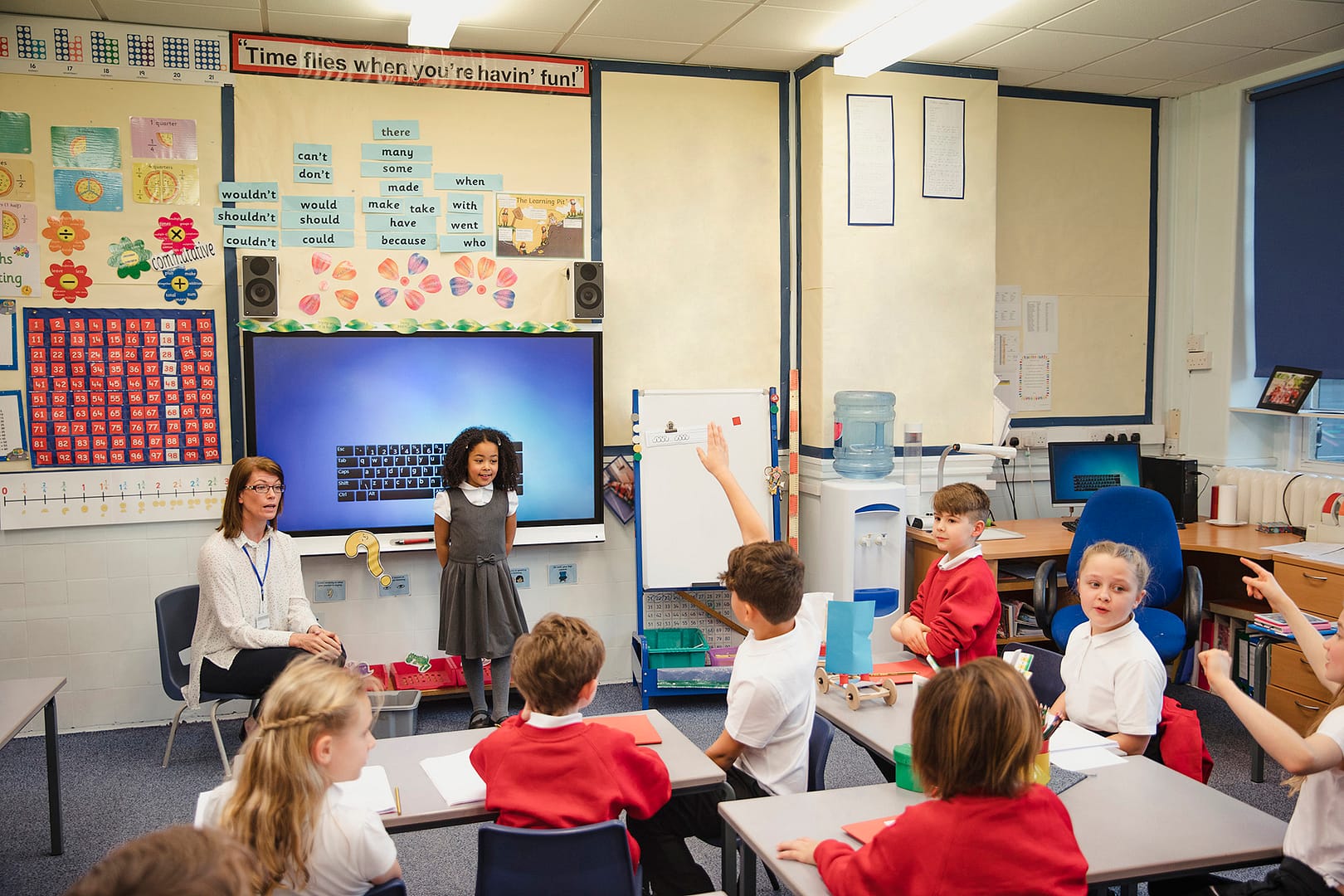How Did The Covid Pandemic Impact Primary School Children’s Attention Spans?
Written by Kapow Primary
Published on 13th June 2023
Last Updated: 12th August 2023
Written by Kapow Primary
Published on 13th June 2023
Last Updated: 12th August 2023

You may have seen the recent headlines based on our survey of teachers’ experiences teaching Generation Alpha in primary schools. Gen Alpha is the first generation to experience digital classrooms from early childhood, coupled with the impacts of the Covid pandemic and lockdown.
Talking to our friends and colleagues in the teaching profession, we knew anecdotally of the challenges this has brought into the classroom. So, we set out to discover the impact through a survey we launched in April. We wanted to understand the challenges our teaching colleagues face in the classrooms more clearly, and what tools teachers feel might help to deal with these challenges.
We received responses from over 500 primary school and early years teachers about their experiences teaching Generation Alpha. What we found illuminates the challenges in primary classrooms today.
Teachers had told us of the challenges in primary schools. Still, we were surprised by the scale reported to us. We found out that:
Our findings have resonated widely, and, as a result, this data has been shared in many national, online and local media outlets.
The survey results were published in The Guardian, TES [paywall], The Daily Telegraph [paywall], The Independent (twice!), The Times [paywall], Daily Mirror, and the Daily Mail as well as over 50 other local and online publications!
These results show that the implications of the Covid-19 pandemic for primary school education are far from over.
Our aim in carrying out this research was to uncover the realities teachers face in the classroom. It was not to imply any criticism of schools, teachers, parents, or, least of all, the children. Every group, throughout Covid, dealt with very challenging circumstances. Our teaching colleagues, including many of our current Kapow Primary team, kept classrooms running both in person and online throughout lockdowns. Parents juggled work, childcare and homeschooling. And children found their worlds upended for reasons they often couldn’t understand.
Yet, the reality is that teachers face these issues in the classrooms. We knew what we were hearing from our teaching colleagues, but it was clear that we would need to understand the scale and impact first to play a part in any solutions to the problem.
Our survey showed 64% of teachers want help with lesson resources that include a variety of different types of content and approaches.
This is because several factors make it difficult for teachers to produce their own creative resources. For example, 20% of teachers believe that workload and administrative demands are holding them back, and 14% cite a lack of budget.
At Kapow Primary, we believe in the power of a pedagogically rigorous but engaging and varied curriculum. We want children to go home not only repeating the facts they have learnt but also singing the songs developed to help with recall, brandishing art projects, or excitedly talking about their Come Dine with Me menus.
Each Kapow Primary lesson follows the tried-and-tested format of recapping previous knowledge, an attention grabber, the main event and, finally, wrapping up.
However, we ensure activities vary from lesson to lesson within a scheme to help challenge and engage the children. These varied and captivating activities include songs, quizzes, stories, real-life examples, recipes, games, interactive resources, classroom debates, carousel activities, and more.
We build our schemes of work around a spiral curriculum structure, helping to embed, revisit and build on what is taught while ensuring children have plenty of opportunities to pick up the necessary skills and knowledge, and to build conceptual understanding. You can find out more in our blog Using a Spiral Curriculum Model to Enhance Learning.
To support you in delivering our lessons confidently, each scheme includes integrated CPD at the point of delivery for teachers.
Finally, just as we set out to understand the post-Covid challenges in the classroom through a survey, we often conduct customer research. We regularly undertake this to help us build better curriculums, support our customers, and ensure we deliver what you need.
This year alone, we have carried out five surveys. They help us to understand what challenges subject leaders face or the subject-specific challenges in delivering Design and technology, RSE & PSHE, and Computing. These are all in addition to our research on teaching Generation Alpha.
We value the detailed information and feedback our customers have given us. This is carefully collated, interpreted and used to update our products and materials to provide you with more of what you need.
These changes have included updating our Subject Leader Toolkits. Or producing our detailed RSE & PSHE Parent’s Guide, breaking down what is covered by our RSE & PSHE scheme for sharing with parents, carers and the wider school community. Also, our recent Design and technology webinars help you to deliver this often challenging subject.
All this, plus more in the pipeline!
Clearly, there is no single solution to the complex challenges facing primary schools post-Covid. Staff have responded to the issues facing their school communities, and updated behaviour policies.
But, as a provider of schemes of work, we are working hard to play our part by providing exciting and varied lessons. We aim to help children fully engage with what they learn in class.